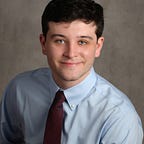Disrupting discourse surrounding the American Dream
This past semester I had the pleasure of getting to know Damany Higgs over the phone.
A 41-year-old academic advisor at the City University of New York-College of Staten Island, Mr. Higgs grew up in White Plains, New York, about 90 minutes outside of New York City. He is African-American and is sexually fluid. Growing up in White Plains, Mr. Higgs’ family was firmly in the middle class. His father was a firefighter, and his mother was a social worker at a school. He enjoys working with young people as an academic advisor because it allows him to be heard and his opinions to be valued.
Our conversation centered around the American Dream. Our personal experiences being so different, I found the discussion was eye-opening.
Often when people discuss the American Dream and how different demographic groups experience it, the intersectionality of these groups is ignored. However, Mr. Higgs stressed the intersectionality of White Plains as impactful to the community. Especially within the town’s black community, Mr. Higgs’ described the socio-economic difference between the families who lived in one of White Plains’ three large housing projects and those who did not. As Mr. Higgs said, the black “haves” and “have-nots” were connected through churches and community centers, but the kids noticed the differences between the two. One element that became apparent to Mr. Higgs was the difference between families who could go on a “vacation” as opposed to whose “vacation” consisted of visiting family. Additionality, those in the middle class, like Mr. Higgs, could afford simple luxuries such as music lessons. Yet both sides found themselves in the same position in school, having to tolerate instances such as teachers expecting them to know about black history more than their white peers. Listening to this disrupted much of the discourse I hear about the American Dream.
Towards the end of our conversation, we found an interesting connection between our two families. We both have grandparents who grew up as sharecroppers. Obviously, this occupation corresponds to quite low socio-economic status, yet my grandfather was given an opportunity to “pull himself up by his bootstraps” that African-Americans, like Mr. Higgs’ grandparents, were not: The G.I. Bill. This example demonstrates how the discourse surrounding the American Dream, that everyone has a fair shot at upward mobility, is built on a false premise.
